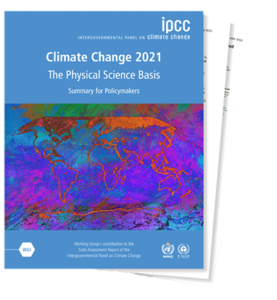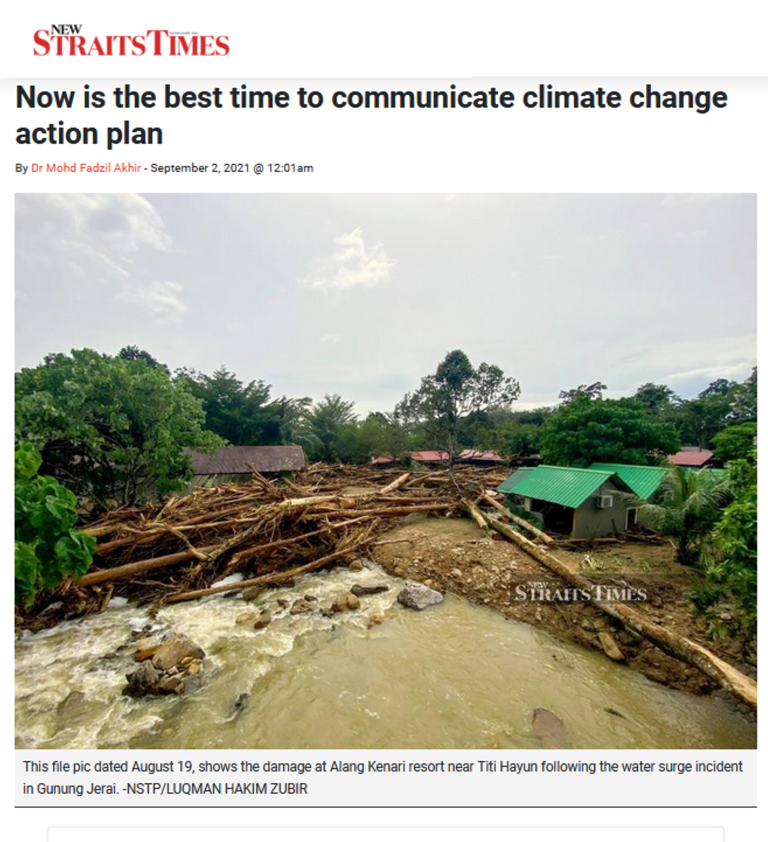
It is devastating to see another extreme flash flooding water gushing down slopes around Gunung Jerai catchment area affecting thousands of people in Kedah. Many started to blame deforestation as the leading cause, and some reserved their blame towards climate change. Twitter feeds start pouring comments, but several threads begin to attract attention. For example, some internet users use Google Earth snapshots, freely comparing available high-end satellites images with different time frames, trying to prove the cause of the flash floods.
During this information age, people requires explanation substantiated with evidence, not just theories. Their efforts to explore into every accessible information to back their views is very impressive. It is a great progress for Malaysia when the people are shifting their trust from theory to empirical data, and when science is being at the focal point of discussion.
Although interest in science is relatively low in Malaysia, the recent trend has shown that trust in evidence-based decision is at the pinnacle. The vaccination program is a straightforward example. Swift action in thumping vaccine sceptics was founded based on scientific explanation. It is time for scientists to increase science advocacy to translate essential information into impactful actions. A recent IPCC report published in early August will be the best tool – this 3,000-pages report altogether describes itself as a “code red for humanity.” If scientists were to properly use this output, it might accomplish two things; creating fear of an impending danger posed by the changing climate, or instil awareness that we can still do something about it. Both elements will effectively carry a sense of urgency and climate literacy.
The report took almost 8 years to prepare, by 234 leading scientists from more than 60 countries, who are among the best in their respective fields. It requires them to digest nearly 15,000 scientific papers and derive the interconnectivity therein, which carry loads of information on what will change our physical earth. 195 representatives from UN member countries subsequently reviewed those reports in several stages. It took longer than expected because the first draft of the current report had more than 23,000 review comments from experts while the second draft had more than 50,000 review comments, which were taken into consideration in producing the final draft. It is by far the most comprehensive and sophisticated report ever made on earth. Its lengthy and systematic examination process by fellow scientists makes it almost impossible to deny the findings.
So what does the report found? The IPCC emphasizes the global temperature has increased more than 1.1%, the highest since 125,000 years ago. The ice melting is at a tipping point, and it will speed up the sea level rise, which tells us that coastal erosion will worsen and few coastal cities will be underwater in the next few decades. Most importantly, for us in Malaysia, this is the first time the report underlines the increase of extreme weather events such as rainfall, drought, storm, and flooding.
To trust the report is one thing, to act upon it is another – and the education sector is trying its best to do both. For several decades, there has been a widespread and organized campaign aimed to generate scepticism in science. Some were funded by big industries threatened by the findings of modern science, which might cause trouble to their establishment. Take, for example, the flat-earth theory. Even, a standard 6 school children can testify how ridiculous it is. However, ideas flow swiftly in this internet age where social media influencers or celebrities can easily gain traction of these silly ideas through their millions of so-called followers.
Our climate is changing, so must our approach. The changes we need to make are complex, particularly when we lack the skills of communicating our findings and increase public literacy on climate-related actions. This effort demands large-scale, collective action: to build and create interests, change mind-sets, revolutionize public advocacy, and perhaps rebuilding our education system. Modern society relies on experts. We must therefore grab this opportunity with the most extensive data and information available. Now is the best time to communicate climate change action to the public.
Like the Covid-19 vaccination program, we want to translate information into action. Just knowing and agreeing about vaccines is not enough without taking the jab. So do climate change, it is happening, and we can feel it. Many of the direst effects of climate change can still be avoided by taking immediate action.
*This article first appeared in the New Straits Times

Written by:
Prof. Ts. Dr. Mohd Fadzil Akhir, Director, Institute of Oceanography and Environment, UMT

Copyright © INOS | Institute of Oceanography and Environment | Universiti Malaysia Terenganu | 2024. All rights reserved.